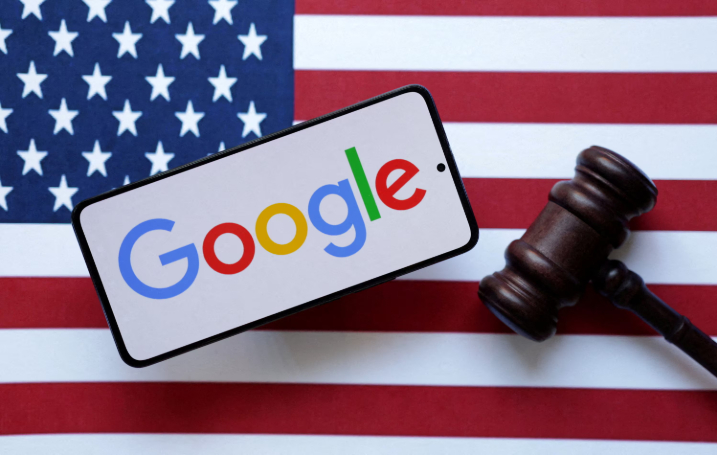Google is facing significant challenges. As my colleague Dan Milmo reported, the US Department of Justice “has proposed a comprehensive overhaul of Google’s structure and business practices, which includes the sale of its Chrome browser, in order to eliminate its monopoly on internet search.” This initiative follows a major court ruling last August where a federal judge concluded that Google had breached antitrust laws and maintained an illegal monopoly over search services. The Justice Department’s demand is straightforward: “Google must divest Chrome.” Regarding Android, the Department proposes two possible solutions: divestiture or submit to government oversight.
Both of these demands pose enormous obstacles to Google’s diverse, highly profitable advertising business and would represent a worst-case scenario for the firm.
In a strongly defensive blog entry, Google’s chief legal officer, Kent Walker, described the Justice Department’s suggestions as “staggering,” “extreme,” and “unprecedented government overreach.” Walker is likely under considerable pressure at this time. The company intends to present its own proposals next month and appeal its initial court loss. His tone, however, was at times nearly comically exaggerated: “As just one example, the DoJ’s proposal would literally require us to implement not just one but two separate choice screens before accessing Google search on a Pixel phone you purchased.” Not just one, but two different choice screens??!!
The Justice Department asserts that its aim is to foster competition. Its attorneys stated in a court document: “A remedy for Google’s unlawful monopolization must simultaneously (1) liberate these markets from Google’s exclusionary practices; (2) open them up to competition; (3) deny Google any benefits from its statutory violations; and (4) prevent Google from monopolizing these and related markets in the future.”
Google search forms the foundation of the company’s profitable advertising business; Chrome acts as the second pillar. It is the world’s most widely used browser, capturing almost two-thirds of internet users. It serves as a significant source of browsing data and a critical entry point to Google search and the associated ads displayed via Google search.
The advertising business is the primary source of the company’s earnings and importance, making Chrome a vital component for Google. The loss of Chrome would severely impact the ad business and shrink Google’s operations. That aligns with the Justice Department’s objective. Google argues that divestment would undermine US leadership in the technology sector; the Justice Department contends that Google’s monopolistic behavior is detrimental to US leadership in the tech industry.
Google might also be compelled to divest Android, the leading smartphone operating system. Android similarly serves as a pathway for data that is utilized for ad sales. Selling Android would represent a substantial blow to Google’s business. A more intriguing scenario regarding Android would be its submission to government regulation. What design choices would a government committee make? It would be interesting to witness the aesthetic features of a government-controlled smartphone operating system. Two separate choice screens? Sweet suffering Jesus!
Without Chrome, Google would forfeit access to the highly lucrative youth market. The company’s Chromebooks are affordable devices used by schools to distribute laptops to students. Those laptops operate on Chrome OS, an operating system tailored for web browsing and online tasks. Young users who become familiar with one company’s products are likely to seek out those products in adulthood. Apple has claimed that training school-age users on its devices can create a significant pipeline of future customers.
Defaults hold significant power, whether they manifest as devices in educational settings or as the search engine that appears in your browser’s address bar. Even if Google manages to overturn the mandated divestment of Chrome, it seems probable that the company will have to terminate its deal worth at least $20 billion with Apple to keep its search engine as the default option in the Safari browser. Google’s only apparent concession, according to Walker’s blog post, is that it would accept modifications, perhaps even complete cancellations, of those agreements.
Walker indicates that the Justice Department might have suggested remedies related to “search distribution agreements”—Google’s contracts with browsers like Firefox. If even Google’s chief legal officer suggests he would have preferred changes to those agreements, it’s reasonable to conclude that he would have welcomed those changes. The browser agreements may soon no longer be in effect. You, as the user of the product, might find yourself needing to select a default search engine for your iPhone’s browser. I would recommend exploring alternatives to Google, perhaps the privacy-oriented DuckDuckGo, just for the fun of it. You can always revert back. Google will still be there, awaiting your return.
A few weeks back, Elon Musk, known as “First Buddy,” and Vivek Ramaswamy, who unsuccessfully ran for president, were officially assigned as leaders of a new Department of Government Efficiency. Musk prefers to refer to this department as Doge, which, despite not falling under the US government, has received a gray checkmark on Twitter/X, suggesting it is a “government or multilateral organization account.” Essentially, Musk and Ramaswamy are advisers to Trump. The House oversight committee is establishing a subcommittee to collaborate with them. It’s somewhat humorous that a bureau aimed at reducing bureaucracy requires two leaders (along with Marjorie Taylor Greene’s involvement in the House).
In an article published in the Wall Street Journal, they present their vision for this non-governmental agency. Their strategy primarily revolves around executive actions, relying on Trump’s decrees, predicting that the conservative Supreme Court will support these moves. They discuss efficiencies in broad terms—deliberately avoiding specific details. For example: “A drastic reduction in federal regulations provides sound industrial logic for mass head-count reductions across the federal bureaucracy.” This translates to: “We will dismantle laws to enable significant layoffs. This will decrease government expenditures and enhance the productivity of individual employees.”
In a manner reminiscent of Trump, they outline their adversaries by listing cost-cutting targets: the media, international collaboration (priority for America, naturally), and liberals. They highlight examples of funds to eliminate, such as “$535 million annually for the Corporation for Public Broadcasting; $1.5 billion for international organization grants; and nearly $300 million for progressive groups like Planned Parenthood.” Simultaneously, they assert that large-scale federal employee dismissals will not be politically motivated but merely apolitical “reductions in force.” They also vow to mandate that all employees must be present in the office five days a week.
Musk has made substantial efforts to portray Doge as a cutting-edge initiative, yet nothing could be considered less edgy or appealing than federal spending policies.
To achieve Doge’s ambitious goals worth billions, Musk will need his talent for motivating people. Just the week prior, the planet’s richest individual requested applications from “high-IQ revolutionaries” for his new project. The incentives? Long hours of “tedious work” (his own description) and no compensation.
Musk and Ramaswamy’s grasp of government seems limited based on their public comments, which may indeed be the intention behind their roles but also presents a considerable obstacle. They propose to eliminate all government programs lacking active congressional approval. This idea appears logically sound on the surface. However, as one person noted on X, such a move would result in cutting healthcare for all US military veterans. The authorization for the Veterans’ Health Care Eligibility Act expired in 1998. Undertaking such an action would likely be a massive political blunder and very improbable to achieve, even if it could save taxpayers approximately $120 billion.
Musk has been designated as Trump’s “secretary of cost-cutting.” If you’re curious about his past cost-cutting methods, the New York Times has compiled a list of expenses he has reduced across his various companies. In brief: His strategies were effective at SpaceX, but less so at Tesla. SpaceX’s Falcon 9 rocket costs around $550 million, while NASA has estimated that the same spacecraft would cost the agency about $4 billion to construct. At Tesla, Musk opted not to use pricier radar sensors for the full self-driving capabilities of his vehicles, choosing cameras instead. Currently, the US is investigating the involvement of this autonomous driving software in several fatal accidents.
Google has stated that requiring it to sell Chrome, the world’s leading web browser, would negatively impact consumers and businesses.
The US Department of Justice (DOJ) is expected to present this measure to a judge on Wednesday, according to Bloomberg’s reports.
Judge Amit Mehta concluded in August that Google maintains an online search monopoly and is evaluating potential remedies or penalties.
The DOJ has remained silent on this report, but Google is clear that it opposes the proposal.
“The DOJ keeps advancing a radical agenda that extends well beyond the legal concerns of this case,” Google executive Lee-Anne Mulholland stated.
Additionally, Google is likely to be required to implement new regulations regarding its artificial intelligence, Android operating system, and data handling.
“The government’s interference in these areas would harm consumers, developers, and American technological leadership at exactly the critical time it is most needed,” added Ms. Mulholland.
Chrome holds the title of the most widely used browser globally, with web traffic analyst Similarweb recording its global market share at 64.61% in October.
At the same time, Google search commands nearly 90% of the global search engine market share as of October, according to Statcounter.
It also serves as the default search engine in Chrome as well as in numerous smartphone browsers, including Safari on iPhones.
Judge Mehta remarked in his August ruling that the default search engine represented “extremely valuable real estate” for Google.
“Even if a new competitor were adequately equipped to bid for the default position when a contract expires, such a company could only compete if it were willing to pay partners billions of dollars in revenue sharing,” he noted.
The DOJ was anticipated to submit its final proposed remedies to the court by Wednesday.
In an October filing outlining initial proposals, it mentioned that it would contemplate pursuing a break-up of Google.
The potential remedies included “preventing Google from leveraging products like Chrome, Play [its app store], and Android to benefit Google search and Google-related products,” it stated at the time.
‘Splitting off’
Google has consistently denied being a monopoly in online search.
In response to the DOJ’s October filing, Google asserted that “splitting off” segments of its operations like Chrome or Android would “damage them.”
“Separating them would alter their business models, increase device costs, and weaken Android and Google Play in their competitive standing against Apple’s iPhone and App Store,” the company contended.
It also claimed that this would complicate efforts to maintain Chrome’s security.
What implications could the Google monopoly ruling have for you?
According to the company’s latest quarterly report, revenues from its search and advertising sectors grew by 10% to reach $65.9 billion.
Chief executive Sundar Pichai mentioned that millions of users are now accessing the company’s AI search tools.
Investors have been closely monitoring Google’s stock price on Tuesday, following reports regarding the DOJ’s proposed remedies.
Government lawyers have also suggested that District Judge Amit Mehta compel the company to refrain from establishing contracts with firms—including Apple and Samsung—that designate its search engine as the default on numerous smartphones and browsers.
The proposed remedies arise from a significant anti-competition ruling issued in August, where Judge Mehta determined that Google unlawfully suppressed its competition in online search.
The Department of Justice was accompanied in the filing by a coalition of US states advocating that the changes would assist in opening a monopolized market.
“Restoring competition in the markets for general search and search text advertising as they currently exist will necessitate reinitiating the competitive process that Google has long stifled,” the government lawyers stated.
In response, Google remarked that with its proposals, the DOJ “opted to promote a radical interventionist agenda that would harm Americans and the United States’ global technology leadership.”
“[The] DOJ’s excessively broad proposal goes far beyond the Court’s decision,” asserted Kent Walker, president of global affairs at Google.
“It would dismantle a variety of Google products—even those beyond Search—that people cherish and find useful in their daily lives.”
Google is expected to present its own proposed remedies by December 20.
Judge Mehta plans to deliver a decision by the summer of 2025.
According to web traffic analysis platform Statcounter, Google’s search engine represents approximately 90% of all online searches globally.
Government attorneys further mentioned that Google’s control of the Chrome browser and the Android operating system has enabled it to direct users to its search engine.
Part of the proposal included preventing Google from re-entering the browser market for five years.
The DOJ also suggested that there be court oversight of Android to ensure the company avoids using its ecosystem to “favor its general search services and search text ad monopolies.”
A new administration
The DOJ’s lawsuit against Google was initiated in the final months of Donald Trump’s first administration.
With the President-elect scheduled to resume office on January 20, there are questions about whether his new administration will adopt a different stance on the case.
“It would be unusual for the second Trump administration to withdraw from a lawsuit they initiated themselves,” stated Rebecca Allensworth, associate dean for research and anti-trust professor at Vanderbilt Law School.
Even if Trump attempted to halt the case from advancing, which Prof Allensworth perceived as unlikely, the states included as plaintiffs could continue independently.
“With that in mind, they can’t eliminate it,” she remarked. “I believe the federal government will maintain its focus, but how aggressively they’ll pursue it and what they will demand remains quite uncertain.”
According to Professor Laura Phillips-Sawyer of the University of Georgia School of Law, the proposed changes could significantly impact the restoration of competition in the online search market.
The user data that Google accumulated due to its dominance in search aided in “refining Google’s search algorithm and selling text ads,” Professor Phillips-Sawyer explained.
“However, those contracts also render it impossible for any new entrants in search to establish a distribution channel, and without a real chance of reaching consumers, no one will invest in such innovation.”
She suggested that if Mehta accepts the government’s proposals, it could alter the competitive landscape.
Dismantling the band
Separating Google’s operations into smaller segments is arguably the most radical suggestion raised in response to the ruling from August.
The Department of Justice (DOJ) has requested US District Judge Amit Mehta to contemplate this action as he considers what measures—or “remedies”—to implement to address Google’s monopoly.
In a court filing dated Wednesday, November 20, it was proposed that the technology giant should be required to sell its Chrome browser, the most widely used browser and a key pathway to accessing its search engine.
However, Google encompasses more than just search services.
Consider Android, which the company acquired for $50 million (£39.3 million) in 2005 and now operates on the majority of smartphones, or YouTube, purchased for $1.65 billion in 2006, which now generates many times that amount in revenue annually.
The DOJ has proposed that Google should also be compelled to divest Android in addition to Chrome as a “simple” method to prevent it from favoring its search engine over competitors’, although it has also suggested behavioral remedies as an alternative.
In a blog post, Google stated that selling Chrome and potentially Android could compromise the security and privacy of these products.
Another possible remedy revolves around Google’s practice of compensating other companies to use its services.
The US government noted that Google is currently paying substantial sums to companies like Apple each year to be pre-installed as the default search engine on their devices or platforms.
The judge concurred with this point.
The argument is that if Google had not invested that money, larger firms might have been encouraged to create their own search experiences.
As a result, for instance, Apple’s Safari browser defaults to using Google whenever someone searches the web.
If remedial actions considerably impacted Google’s ability to compensate other companies for their usage, it could lead those firms to establish a competitor.
However, they would encounter Google’s exceptionally strong brand recognition in search. Despite its own prominent brand, it is hard to envision instructing someone to “Apple” something.
Apple will certainly be eager to maintain its revenue from Google, which, according to one analyst, was around $20 billion in 2022.
“Any disruption to this revenue stream will significantly impact Apple,” stated Dipanjan Chatterjee from Forrester Research.
“As this case progresses through the legal system, and the most likely outcome seems to be the opening up of search engine exclusivity, expect a brand as focused on customer experience as Apple to have a Plan B to ensure a seamless transition for its users.”
Easier to foresee
A more plausible scenario is the introduction of a choice screen, prompting users who open a browser for the first time to decide between Google or alternatives like Microsoft’s Bing.
The DOJ has advised the court to consider implementing choice screens for users who have not previously selected a default search engine in their proposed solutions.
However, it is somewhat difficult to envision this leading to a mass exodus from Google, mainly because it generally functions effectively for most users.
Those of us with gray hair may remember Google as one of several search engines that arose during the early stages of the internet, alongside familiar competitors like Yahoo and Ask (previously known as AskJeeves), and perhaps less-known rivals like Lycos and AltaVista.
Throughout the following decade, Google didn’t just become the leading player in the market; it became integrated into our language.
Despite Microsoft’s introduction of its competing service, Bing, in 2009, nothing has yet dethroned Google.
Microsoft’s CEO Satya Nadella testified in Google’s trial, likely hoping that a ruling like this could finally give Bing a competitive boost.
“The court may explore alternative ways to dismantle Google’s status as the default search engine, but some of those measures may extend beyond the circumstances driving this case,” remarked Professor Anu Bradford from Columbia Law School.
“For instance, the European Union is taking further steps with its recent Digital Markets Act, which requires even Google’s own Android devices to offer users a ‘choice screen’ to select their preferred search engine upon setup.
“One question is whether this new ruling paves the way for similar regulatory demands in the future.”
Patience required
Whatever the outcome, previous experience indicates that it won’t occur swiftly.
In 1999, Microsoft faced a scenario strikingly akin to the one Google is currently experiencing.
The company had just been determined by a US judge to have established a monopoly, and a year later, a court mandated the company’s breakup.
Microsoft contested the ruling, and in 2001, the initial decision to dismantle it was reversed.
By the end of 2002, Microsoft had reached a settlement with the US Department of Justice, which a judge approved.
However, some US states disagreed, and it wasn’t until 2004—five years after the initial ruling—that the settlement was officially ratified.



